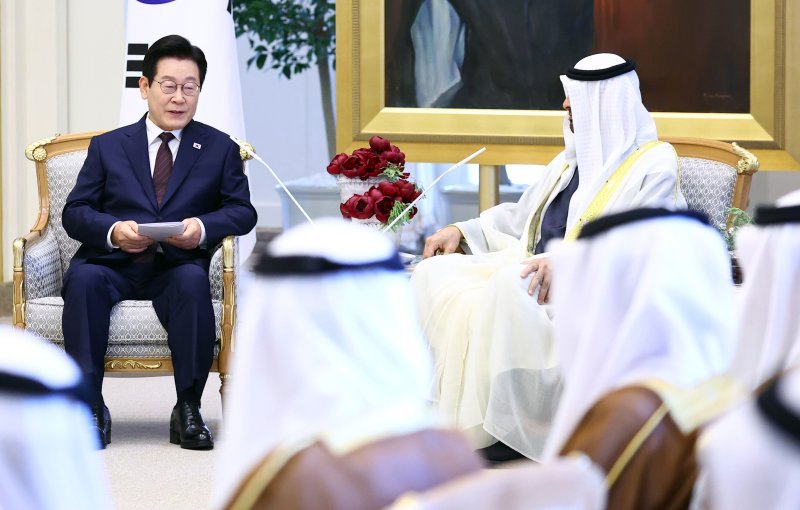[Editorial] Korea-UAE Nuclear Cooperation Agreement Calls for Proactive Domestic Policy
- Input
- 2025-11-19 18:03:54
- Updated
- 2025-11-19 18:03:54

The UAE, a major oil producer, decided in 2009 that oil alone would not meet future energy demands and adopted the Korean nuclear power model. The UAE attached great significance to this plant, naming it 'Barakah,' meaning 'blessing.' True to its name, the four Barakah Nuclear Power Plant units were successfully completed last September after 12 years of construction and now supply 25% of the UAE's electricity demand.
Building on this success, the UAE is expected to serve as a practical bridgehead for the ROK's entry into nuclear power projects in the Middle East and Africa. This is especially critical as Korea Hydro & Nuclear Power (KHNP) faces restrictions in Europe and North America due to its agreement with Westinghouse Electric Company. Expanding into third-country markets is therefore even more urgent for the ROK. It is hoped that both countries will prioritize cooperation in developing Small Modular Reactors (SMR) and nuclear AI technology, paving the way for new markets.
However, nuclear power is an industry where technology, safety, and policy consistency are more important than in any other field. To achieve results in overseas exports, it is essential not only to cooperate with foreign partners but also to enhance the competitiveness and stable operation of the domestic nuclear industry. Confidence in a robust domestic nuclear sector directly translates into export competitiveness. In the past, the ROK faced criticism for pursuing nuclear exports while simultaneously implementing a nuclear phase-out policy, which was seen as contradictory. Some competitors even framed Korea as lacking long-term commitment to the nuclear industry.
Globally, the race to secure energy through nuclear power is accelerating. Donald John Trump, former President of the United States, declared a 'nuclear renaissance' and announced plans to build ten new large reactors by 2030. The United Kingdom of Great Britain and Northern Ireland (UK) also aims to commercialize SMRs by 2030. Japan has restarted 12 out of 33 nuclear reactors that were shut down after the Fukushima accident. In comparison, the ROK's policy stance on nuclear power remains unclear.
To proceed with the large-scale nuclear plants included in the 11th Basic Plan for Electricity Supply and Demand as originally planned, site selection must be completed within this year. Nevertheless, Kim Sung-hwan, Minister of Climate, Energy and Environment, has maintained a reserved stance, stating, 'The decision on new nuclear construction should be made after listening to public opinion.' Although the current administration initially proposed a 'rational energy mix,' it has recently effectively postponed decisions on new nuclear construction.
The ROK aspires to become one of the Top 3 in Artificial Intelligence, but without a stable electricity supply, this goal may remain an empty slogan. Building data centers using 260,000 graphics processing units (GPU) to be supplied by Nvidia Corporation alone would require nearly half the output of a new large-scale nuclear plant. As countries around the world compete to secure nuclear power, there are growing concerns that the ROK may be moving in the opposite direction. Discussing a Top 3 in AI strategy without nuclear power is akin to trying to heat a stove without fuel—a point the government should heed from the nuclear industry.